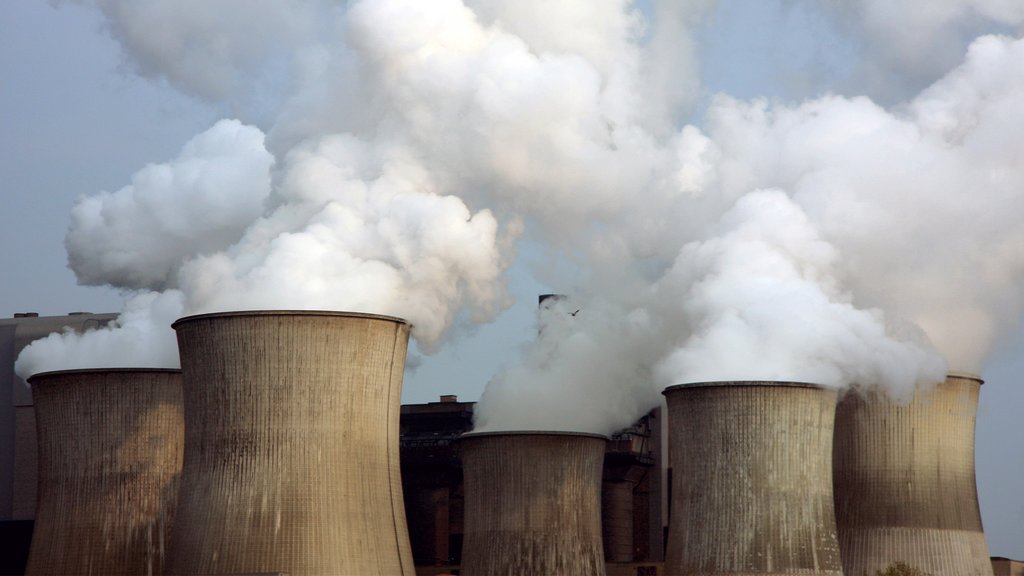Opinions - 22.04.2021 - 00:00
19 April 2021. US President Joe Biden has invited 40 world leaders to a climate summit later this week. Ahead of this meeting, Climate Envoy John Kerry has called on 20 industrialized countries that are responsible for 81 per cent of the emissions to “lead the way” and apologized for the last four years of inaction under Donald Trump who “did not care about science”. Kerry was also in Shanghai last week for meetings with his Chinese counterpart, Xie Zhenhua. In a joint statement released on Saturday, China and the US expressed their commitment to cooperate to tackle the climate crisis and agreed to “continue to discuss” specific measures to reduce emissions.
However, whether any concrete efforts emerge from these talks remains to be seen. This is because the US – the world’s largest economy and second largest emitter of greenhouse gasses – has very little credibility when it comes to climate change mitigation efforts.
The US famously failed to ratify the landmark Kyoto Protocol signed in 1997, and even Bill Clinton and Barack Obama, presidents from the Democratic Party, did not submit the treaty to Congress for ratification. The US Congress has a long history of failing to pass climate change legislation introduced by its members, and it was no surprise that the country pulled out of the 2015 Paris Agreement during Donald Trump’s leadership. The US’ history of reneging on important international agreements demonstrates that it is a bad-faith actor.
Joint action needed
On the other hand, both China and India have consistently emphasized the historical responsibility of the industrialized world in accelerating climate change, and demanded more action including in the form of financial and technological assistance to developing countries. This is unlikely to change. India’s Union Environment Minister reiterated this stance in December last year. Likewise, while China seems interested in pursuing joint action on climate change with the US, development remains an important national interest. And ahead of this week’s summit, Brazil’s environment minister has said his country needs $10bn in aid per year to eliminate illegal deforestation of the Amazon by 2030.
The US has always privileged its economy over climate action, and has the world’s highest per capita GHG emissions. The US military alone is a bigger emitter than 140 countries. Considering the developmental needs still faced by China and India, it is unclear why these rising powers should not claim the same privilege.
While US Republicans and corporations have long opposed climate action and actively undermined scientific research on the topic, there is growing popular support for the US to take meaningful action.
Setting climate as a priority
Joe Biden signed an executive order to rejoin the Paris Agreement on the day of his inauguration as president and unveiled a long list of actions his administration intends to pursue. Appointing former Secretary of State John Kerry as Special Presidential Envoy for Climate and organizing this international summit ahead of COP26 this November also signals that the US may finally be getting more serious about climate action.
However, the US lags behind its industrialized counterparts in climate action. For instance, last December, the 27 EU member states reached an agreement to cut their emissions by 55 percent by 2030. Even Chinese President Xi Jinping announced at the UN General Assembly last year that China would seek to peak its emissions by 2030 and achieve net-zero emissions by 2060.
Undoing Trump’s rollback of Obama-era environment and emissions regulations will constitute important domestic policy moves by the Biden administration. However, rather than making its international commitments contingent on action from other countries, the Biden administration might increase its chances of finding genuine common ground with both China and India if it announces its Nationally Determined Contributions (NDCs). The US is one of only four OECD countries that is yet to do so (the other three are Colombia, Iceland, and Israel). In fact, despite taking a strong stand against requiring such commitments by developing countries during international negotiations, both China and India have already announced their NDCs.
Dr. Manali Kumar is an International Postdoctoral Fellow with the Institute of Political Science at the University of St.Gallen and the Editor-in-Chief of 9DASHLINE. She tweets at @ManaliKumar.
Image: photocase / Mr. Nico
More articles from the same category
Discover our special topics
